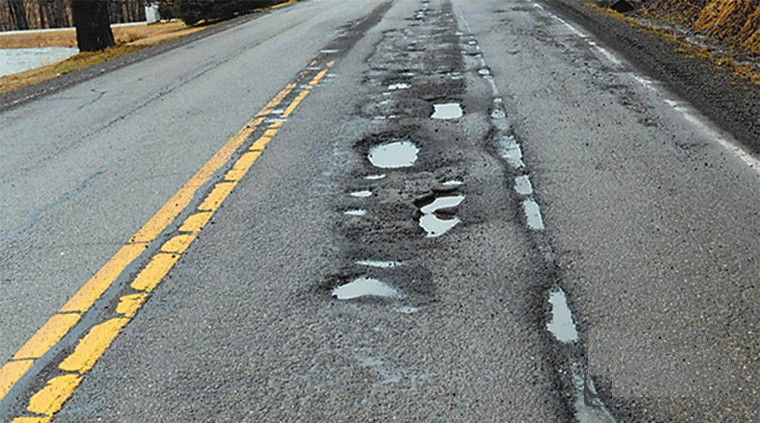Plastic roads are capable of ... self-filling potholes in the Netherlands
A scientist in the Netherlands has invented self-sustaining asphalt to save 90 million Euro per year if put into use.
- Official: We have a new physical state: time crystal
- Successfully manufactured human ear from apples
After a period of use, saphalt paving is often cracked or subsided into potholes. In the face of this situation, material researcher Erik Schlangen, head of the Micro-Mechanics Laboratory of the Delta Delft School in the Netherlands, invented self-healing asphalt.

Mr. Erik Schlangen has created materials that lead from steel fibers and asphalt. When a repair is needed, just use a large induction machine that runs on the road to heat the asphalt, the crack or drive will automatically reconnect.
Self-sustaining asphalt has been tested on 12 routes of the Netherlands and all showed positive results.

Although self-contained asphalt has a higher price of 25%, it has a long time to use twice as long as normal asphalt. Therefore, it is estimated that the use of asphalt roads will automatically save 90 million euros per year.
Mr. Schlangen's team also wanted to create a kind of concrete that has the same self-sufficiency ability. They plan to introduce bacteria into concrete so that they produce calcium carbon that fills the crack.
Of course, this type of bacteria is not harmful to humans and can live naturally for more than 200 years, which will prolong the life of the concrete.
You should read it
- ★ Asphalt absorbs more than 11,000 liters of water every hour, running out of flooding
- ★ How to download Asphalt 9: Legends on the computer
- ★ Asphalt 9: Legends is officially released globally, can be downloaded now
- ★ How to register to play before Asphalt 9: Legends
- ★ Homemade the Asphalt 8 steering wheel set with extremely high quality flange box